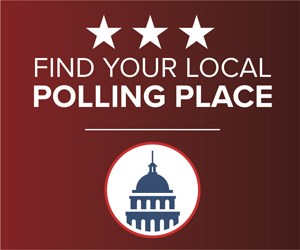The anti-hunting capital of the world is located at 2100 L St., NW in Washington, D.C. There, under the shadow of the Capitol Dome, is the national headquarters of The Humane Society of the United States (HSUS), a multinational conglomerate with 10 regional offices in the U.S.
Standing in front of this edifice filled with people working tirelessly to turn sportsmen into criminals, I began to wonder who funds all this madness. There can`t be that many anti-pet ownership, anti-milk, anti-hunting, left-of-reality, ferret farm-vandalizing, fur-coat-loathing, omnivore-bashing, tree-hugging animal rights activists in the country. After all, Ralph Nader only got 1 percent of the national vote in the 2004 election.
So I knocked on the door.
A woman in a business suit seated at a desk on the other side of the glass door gave me a very quizzical look and motioned for me to enter.
"Can I help you?"
"Yes, I`d really like to know who pays for all of this."
"Who . . . why I . . . how do you mean?"
"Your salary, all this propaganda!" I asked, pointing to booklets with titles like "Civil War or Civility: How to Live with Urban Coyotes," "Souls Like Ourselves: Inspired Thoughts for Personal and Planetary Advancement," and, "Animals in Peril: How `Sustainable Use` is Wiping out the World`s Wildlife."
"Oh, there are many giving, caring people who want to stop animal suffering. Who are you?" Her tone was soft and dreamy.
"An editor for American Hunter magazine."
Her tone became graded and shocked. "You`re kidding?"
After asking to see their leader, I was led down an elevator, through a hall plastered with posters of cuddly animals--nary a lion with blood on its jowls--to the very heart of the largest anti-hunting group in the U.S.
"How can I help you?" said a 20-something man wearing an HSUS T-shirt and a suspicious glare.
"I`m just wondering where your money comes from," I said as I looked around in surprise. There was hardly an office space at all. The whole floor, located appropriately in the basement, was just a large mail-processing center. It seems the heart of the largest anti-hunting group in the U.S. is a propaganda machine. A dozen youths stared at me from over bundles of newsletters, leaflets and HSUS` magazine, Animal Sheltering.
After I had roved around for a few minutes asking questions and picking up samples of their propaganda one of them finally raised the courage to ask: "Who is it you work for?"
"The NRA," I said proudly.
"And how did you get in here?"
"I knocked on the door," I shrugged.
"Then you know where it is," he said while pointing his finger.
Oh, well.
Perhaps the Hollywood approach was too direct. I next opted for a more informal investigation into HSUS` financials, determined to crawl through the slime of the IRS if I had to. However, just as I was pulling on my figurative hip waders, HSUS president, Wayne Pacelle, answered my first question at, of all things, a press conference.
"This is a historic move that is going to unite the (anti-hunting) movement. I`m looking for us to become a hard-hitting campaign organization," he boasted. Then he explained that the merger of HSUS with the Fund for Animals (one of the most radical anti-hunting groups in the world) would now give them a combined annual budget of $96 million.
A $96 million budget! Hmm? HSUS is a 501c(3) nonprofit group, which, as a tax-exempt charity, means its books are open to the public. Well, mostly open. HSUS` complex, international structure helps it hide expenses; accordingly, a quest to determine HSUS` true global net worth turned out to have more turns and pitfalls than an Enron investigation. This is because money routinely goes back and forth between HSUS and its affiliates overseas. For example, according to ActivistCash.com (a website run by the Center for Consumer Freedom, a coalition of restaurant and tavern operators tired of being assaulted by anti-meat activists), HSUS buried $6.4 million of its direct-mail costs in its 2000-2001 budget by putting it into something called the HSUS Wildlife Land Trust, which allowed HSUS to claim that it kept its fundraising costs low so charity watchdog groups wouldn`t give it a failing score.
So they`re slippery, but I wasn`t the first to wonder who pays for their stamps.
How HSUS Got Started
Before you get into their fuzzy economics you have to realize that there is an enormous difference between animal "welfare" organizations, which work for the humane treatment of animals, and modern animal "rights" organizations, which work to completely end hunting and even the ownership of animals. The former have been around for centuries; the latter emerged in the 1950s and grew fanatic in the 1980s with the rise of radical animal-rights groups like People for the Ethical Treatment of Animals (PETA). "Animal-rights groups are a modern concoction that parallel the growing urban detachment from the natural world," said Doug Jeanneret, director of communications for the U.S. Sportmen`s Alliance. "It`s hard to imagine 19th-century farming communities erecting billboards that claim milk causes cancer."
HSUS actually began as an animal-welfare organization. Originally called the National Humane Society, it was established in 1954 as a splinter group of the American Humane Association (AHA). Its founders wanted a more extreme group. Wayne LaPierre, Executive Vice President of the NRA, aptly explains in his book Guns, Freedom and Terrorism that "PETA has quietly succeeded in achieving a bloodless internal takeover of HSUS."
Today, of course, HSUS is anti-hunting, anti-meat eating and is even against owning pets. A few of its current causes include an effort to stop Maryland`s residents from controlling the bear population and a campaign to end the "inhumane practice of bowhunting." HSUS is also the chief force behind PZP, a chemical found in pig ovaries that when injected can make most mammals (including humans) infertile for long periods of time. HSUS has been researching and testing PZP in an effort to convince state game agencies there is an alternative to hunting, as if an army of left-leaning urbanites is going to take up "deer darting" every November and thereby displace the nation`s 14-16 million deer hunters.
Stop laughing, delusions like this have helped HSUS, and other such groups, prosper, as you`ll see in the following top five ways HSUS and other animal-rights groups raise the cash used to try to transform you into a tofu-eating, herbicide-hating, science-dismissing, lactate-intolerant, non-hunting pet "guardian."
1. Misinformation Campaigns
The answer to where HSUS` money comes from starts with its name, which was picked to confuse people into thinking they are one of the reputable "humane societies" that run animal shelters around the country. But though HSUS raises enough money to finance animal shelters in every state, it does not own or run a single one. HSUS feeds off this confusion. Its website has an icon with the statement: "Your shelter performs thankless tasks 365 days a year. It`s time to show them some love." If you click on these two sentences you`ll find an article that explains the importance of animal shelters. To the left of the article is a sidebar asking for donations. Too bad none of the money given to HSUS goes directly to these shelters. Its magazine is even titled Animal Sheltering, when, in fact, HSUS is on the forefront of the political movement to legally redefine "pets" as "companion animals," and their "owners" as merely "guardians." But Americans fall for these evasions of the truth every day.
It`s not just the non-hunting public that has fallen for HSUS` deception. HSUS has even managed to get the U.S. government to help it raise funds (and its public profile). In 1995 the U.S. Postal Service mailed postcards to millions of homes for National Dog Bite Prevention Week. The mailer, which suggested ways dog owners could keep their pets from biting mail carriers, included the HSUS logo and address.
"Even though local shelters are trying their best to save lives, they are simply overwhelmed," said the postcard. That sentence, at least, is true; too bad every dime that went to the multi-million-dollar conglomerate HSUS as a result of this campaign didn`t do a thing about it.
2. Corporate Sponsors
HSUS recently joined the highly lucrative, third-party certification business. Some environmental and animal-rights groups have developed "eco-labels." These are granted (for a price) to farms and corporations to certify that its food and/or clothing is environmentally friendly. HSUS is a founding member of the Humane Farm Animal Care coalition. For the right amount of money its "Certified Humane Raised and Handled" label is available to meat, poultry and dairy producers.
HSUS` website says, "The United States Department of Agriculture, Agricultural Marketing Service Livestock and Seed Program verifies the inspection process of the Certified Humane Raised and Handled program." But, according to Kathryn Mattingly, who does press relations for the USDA Agricultural Marketing Service, that`s a lie. "We have audited the auditors of the Certified Humane Raised and Handled program but they have not retained our services to inspect their program," said Mattingly, who then explained that many companies do legitimately pay the USDA to oversee food-labeling programs.
HSUS declined to answer how much it charges farms and corporations for the use of the label. To qualify, its criteria state that after filling out an application an "inspector then advises the USDA as to where and when the on-site inspection will take place. The USDA then determines if it will attend the inspection or not." Knowing that the USDA is not even involved with the program, this is more than just evasion of the truth; it`s a lie.
Aside from these "eco-labels," naivete leads some corporations to help HSUS. For example, in 1991, Sears, Roebuck and Company donated 8 percent of the wholesale price of selected stuffed animals in its Wishbook catalogue to HSUS. The U.S. Sportsmen`s Alliance called for hunters to express their outrage with the promotion. Not long after, Al Mathes, assistant to the president of the catalogue division, issued an apology and stated, "Every customer ordering stuffed animals from the catalogue will be informed that the promotion is over."
In 1992, Ace Hardware Corporation, a major retailer of hunting and fishing gear, refused to sever its relationship with HSUS. A call went out to sportsmen across the nation to send Ace comments on its partnership with the anti-hunting group. Soon, John J. Cameron, corporate communications director for Ace, announced that the promotion had been cancelled.
In 2001, General Mills, maker of breakfast cereals, promoted HSUS by distributing free calendars in marked packages of Golden Grahams cereal. General Mills heeded the sportsmens` cries and the promotion was ended.
In 2004, Michelin, a leading automobile tire manufacturer, ended its sponsorship of the Red Star Emergency Services Division of the American Humane Association (AHA) after sportsmen protested helping the anti-hunting group.
But some corporations know exactly what they`re supporting. According to HSUS` 2003 Annual Report, Saab Cars USA, American Red Cross, Citibank USA, MasterCard, Pedigree Food for Dogs, Petsafe Training Systems, Safeway Inc., Time Inc. and many others are helping to "generate revenue" for HSUS despite protests from sportsmen.
3. Going Wall Street
In its quest to gobble up a larger share of worldwide animal-rights income, HSUS established the Humane Equity Fund in 2000. Housed at Salomon Smith Barney, the Fund was designed to capture money from smaller animal-rights groups (and financially naive local humane societies) by offering to "manage" their assets in an "animal-friendly way." HSUS seeded the fund with an $8-million check, according to ActivistCash.com.
Salomon Smith Barney committed to paying HSUS an annual consulting fee equal to .07 percent of the fund`s average daily balance. In order to earn its cut, HSUS would identify corporations worthy of the fund`s "humane" investment policies--and blacklist other investment vehicles as "inhumane." However, by August 2002, the fund was "terminated" because, according to HSUS, "many funds suffered in the recent economic conditions." How much of local animal-welfare groups` money was squandered by HSUS` failed investment vehicle is unknown.
The Sierra Club has also dabbled in the market. Forward Management LLC, based in San Francisco, helped create the Sierra Club Funds, securities chosen for potential investment based on environmental and social criteria set by the Sierra Club. (Lest you think the Sierra Club is not anti-hunting and anti-gun, here are a few facts to the contrary: see sidebar "Oh, How They`ve Changed!")
HSUS also uses "Charitable Gift Annuities," a contract between an individual and the HSUS whereby someone transfers cash, real estate or marketable securities (e.g., stocks, bonds, mutual fund shares, etc.) of at least $5,000 to HSUS and, in exchange, HSUS pays them a fixed amount monthly, quarterly or annually. There is also a donor-advised fund that operates like a private foundation. Basically, someone sets money aside for charity. It stays there (minus administration fees by HSUS) until the person decides what group to give it to. Again, those who do give to HSUS have no way of knowing what cause their money has gone to.
4. Trust Fund Babies
Big, bureaucratic, left-leaning foundations are the chief givers to anti-hunting groups. It`s the same every time: Some leader of industry creates a fortune, he passes on and his children (or children`s children) grow up guilty rich. Lost as they are in their idealistic, silver-spoon-fed fantasy worlds, they decide they have to do something to stop horrible corporations interested only in profit margins (like the ones that generated the cash for their trust funds) from ruining the planet. And thus a charitable foundation is born.
All the children take up seats on the board and each year they gather to dole out cash from the interest on the money in their foundation`s pool. And they feel so good when they give millions to Greenpeace to run campaigns against selling genetically improved crops to prevent people in third-world countries from eating what the rest of us do (and so Greenpeace can profit from sales of its "organic" crops), and to HSUS to stop "trophy" hunters from controlling the bear population in Maryland, and to PETA so it can put up billboards that declare, "Beef: It`s What`s Rotting in Your Colon," while PETA passes money to eco-terrorists like the Animal Liberation Front so they, in turn, can burn down vacation homes.
During the last presidential campaign you might have heard that Teresa Heinz Kerry is one of these guilty, liberal rich idealists. She is listed as the "chair" of Heinz Endowments, a foundation instituted by Howard Heinz`s widow in 1941. Howard`s father was Henry J. Heinz, the table-condiments innovator who founded the Heinz food processing company. As of 2001 Heinz Endowments had a total net worth of $1,257,555,612, and had given $6,049,500 to Tides Foundation and Tides Center (a foundation ActivistCash.com calls a "money laundering scheme" that gives millions to animal-rights groups), $2,570,767 to Environmental Defense (a group whose key issue is global warming), and $88,000 to the Sierra Club.
Possibly the biggest and most powerful foundation is The Pew Charitable Trusts, which was endowed with various inheritances of the four children of Joseph N. Pew, founder of the Sun Oil Company.
As of 2002, its total assets were $7,631,088,018 and in that year alone it awarded $238,534,822 in grants. Here are a few examples: The Tides Foundation and Tides Center got $114,086,400 between 1990-2002; Earthjustice (The Sierra Club`s Legal Defense Fund, which has fought to stop the hunting of grizzlies and wolves) got $19,046,000 between 1995-2003; the Natural Resources Defense Council (a group that grew famous when it accused apple growers of using cancer-causing agents--allegations that proved false, yet cost apple growers an estimated $250 million) was given $11,568,000 between 1991-2000; and the Sierra Club was given $4,035,000 between 1992-2001.
There are many other examples--Geraldine R. Dodge Foundation, The Rockefeller Foundation--but they all follow the same pattern, loads of money from old industry being dumped into far-left causes, many of which are designed to erode your rights as a sportsman and a shooter.










